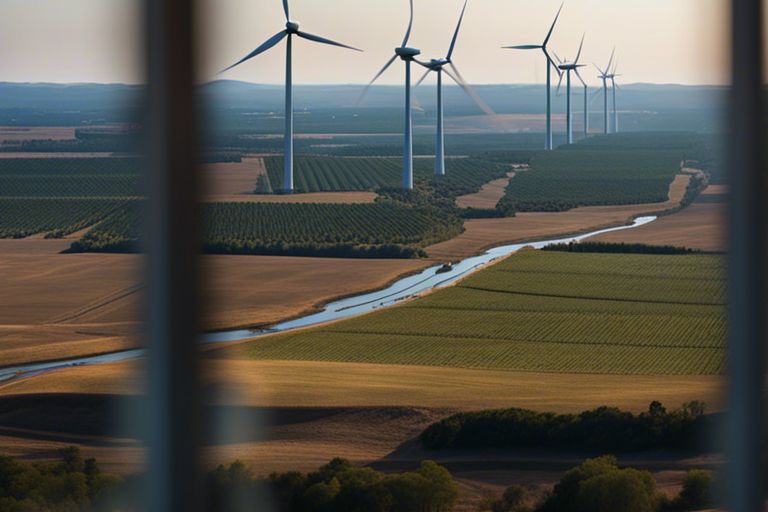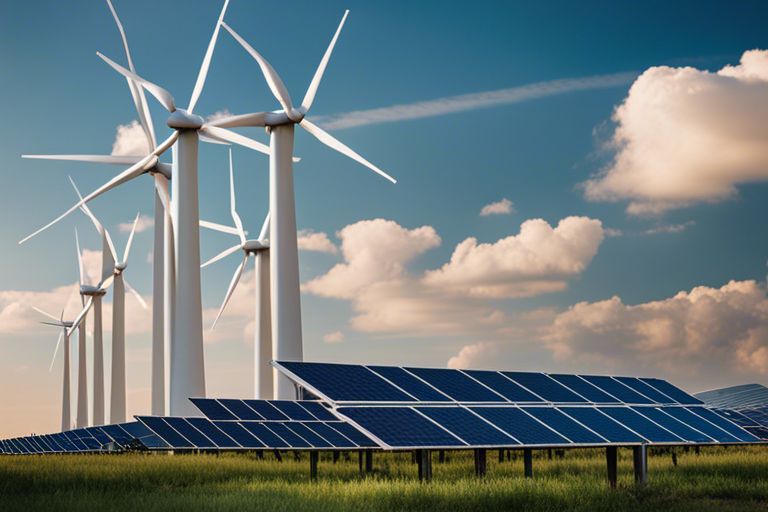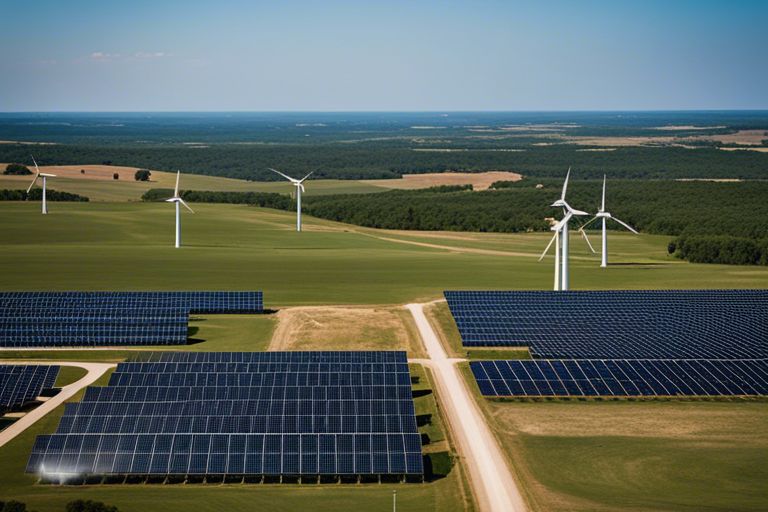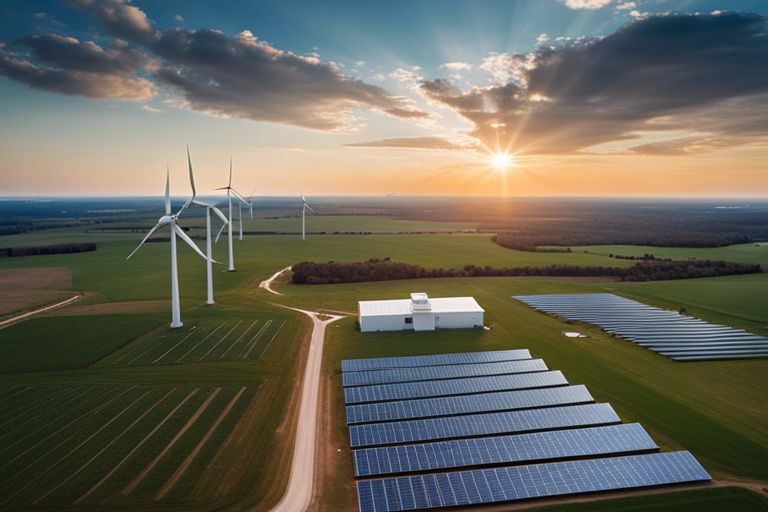Over the years, Oklahoma has been making significant strides towards incorporating renewable energy sources into its power grid. However, an often-overlooked aspect of achieving these goals is energy efficiency. By focusing on improving energy efficiency, the state can not only reduce its carbon footprint but also lower energy costs for consumers, boost economic growth, and enhance energy security. This blog post will explore the benefits of energy efficiency for Oklahoma’s renewable energy goals and shed light on the crucial role it plays in the state’s sustainable energy future.
Key Takeaways:
- Energy efficiency is crucial for Oklahoma’s renewable energy goals as it helps reduce overall energy consumption.
- Improving energy efficiency can lead to cost savings for residents and businesses in the long run.
- Reducing energy waste through efficiency measures can help Oklahoma meet its renewable energy targets more effectively.
- Increased energy efficiency can help lower greenhouse gas emissions and promote a cleaner environment in the state.
- Energy efficiency programs can create new job opportunities and stimulate economic growth in Oklahoma’s renewable energy sector.

Understanding Energy Efficiency
Definition and Key Concepts
Some of the key concepts related to energy efficiency include maximizing the use of energy while minimizing waste. Energy efficiency encompasses practices, technologies, and policies that aim to reduce the amount of energy required for various processes. It involves utilizing resources in a more sustainable and cost-effective manner to achieve the same level of productivity.
Relationship Between Energy Efficiency and Renewable Energy
Definition: Some definitions attribute energy efficiency to the efforts made to decrease energy consumption by using more efficient technologies and practices. On the other hand, renewable energy refers to energy derived from naturally replenishing resources like sunlight, wind, and geothermal heat. The relationship between energy efficiency and renewable energy lies in their combined potential to reduce greenhouse gas emissions and dependence on non-renewable energy sources.
Benefits of Energy Efficiency for Oklahoma
Cost Savings for Consumers and Businesses
Now, more than ever, energy efficiency plays a crucial role in achieving Oklahoma’s renewable energy goals. One significant benefit of energy efficiency is the cost savings it offers to both consumers and businesses. By implementing energy-efficient practices and technologies, individuals and organizations can reduce their energy consumption, leading to lower utility bills and operational costs. This not only helps to save money in the long run but also contributes to a more sustainable energy future for the state.
Environmental Impact and Carbon Reduction
Businesses in Oklahoma can significantly impact the environment by improving their energy efficiency. Energy-efficient practices help reduce greenhouse gas emissions and lower overall energy consumption. This not only benefits the environment by mitigating climate change but also enhances the quality of air and water in the region. By prioritizing energy efficiency, businesses can play a vital role in achieving Oklahoma’s renewable energy goals and creating a cleaner, healthier future for all.
Understanding the importance of energy efficiency in Oklahoma is crucial for reaching renewable energy targets and reducing the state’s carbon footprint. By embracing energy-efficient practices, consumers and businesses can not only save on costs but also contribute to a more sustainable and environmentally friendly future. Investing in energy efficiency today is an investment in a cleaner, more prosperous tomorrow.
Policy and Implementation
Current Energy Policies in Oklahoma
For Oklahoma to achieve its renewable energy goals, it is necessary to assess its current energy policies. Any policies in place must align with the state’s commitment to transitioning to cleaner sources of energy. Any barriers or limitations hindering progress towards energy efficiency and renewable energy adoption must be identified and addressed promptly.
Strategies for Enhancing Energy Efficiency
For Oklahoma to successfully integrate energy efficiency into its renewable energy goals, strategic planning and implementation are crucial. Efficiency measures such as incentivizing energy-saving technologies, promoting energy audits for buildings, and establishing energy efficiency standards can play a significant role in reducing energy consumption and greenhouse gas emissions.
Another strategy to enhance energy efficiency is through public awareness campaigns and education. By raising awareness about the importance of energy efficiency and providing resources for energy-saving practices, Oklahoma can encourage widespread participation and support for sustainable energy initiatives.

Challenges and Opportunities
Overcoming Barriers to Energy Efficiency
Barriers to implementing energy efficiency initiatives in Oklahoma include upfront costs, lack of awareness, and resistance to change. However, your commitment to investing in energy-efficient technologies can lead to long-term cost savings, reduced environmental impact, and improved energy security.
Potential for Future Growth in Renewable Energy
Growth in renewable energy in Oklahoma has been promising, with abundant wind resources and solar potential. To further capitalize on this potential, investing in infrastructure, incentivizing renewable energy projects, and promoting education and awareness about the benefits of renewables will be key. With the right policies and support, Oklahoma can diversify its energy portfolio and work towards a more sustainable future.
Conclusion
Now, with the increasing importance of renewable energy goals in Oklahoma, energy efficiency emerges as a crucial component to achieve sustainability and reduce carbon emissions. By focusing on energy efficiency measures, such as upgrading infrastructure, implementing energy-saving technologies, and promoting energy conservation practices, Oklahoma can make significant strides towards meeting its renewable energy targets. Not only does energy efficiency help in reducing greenhouse gas emissions and lowering energy costs, but it also contributes to job creation, boosts the economy, and enhances grid reliability. Ultimately, integrating energy efficiency into Oklahoma’s renewable energy goals will lead to a more sustainable future for the state and its residents.
FAQ
Q: Why is energy efficiency important for Oklahoma’s renewable energy goals?
A: Energy efficiency plays a crucial role in Oklahoma’s renewable energy goals by reducing the overall demand for energy, which can help lower the reliance on traditional fossil fuels and enable a smoother transition to renewable energy sources.
Q: How does energy efficiency contribute to reducing greenhouse gas emissions in Oklahoma?
A: By reducing energy consumption, energy efficiency measures can help lower the production of greenhouse gas emissions in Oklahoma, thus contributing to the state’s efforts in combatting climate change and promoting sustainability.
Q: What are the economic benefits of implementing energy efficiency measures in Oklahoma?
A: Implementing energy efficiency measures can lead to cost savings for both households and businesses in Oklahoma through reduced energy bills, increased energy productivity, and job creation in the clean energy sector.
Q: How can energy efficiency support energy security in Oklahoma?
A: Energy efficiency can enhance energy security in Oklahoma by diversifying the energy mix, reducing dependence on external energy sources, and improving energy reliability, especially during times of peak demand or supply disruptions.
Q: What role does energy efficiency play in promoting sustainable development in Oklahoma?
A: Energy efficiency is crucial for promoting sustainable development in Oklahoma by conserving resources, minimizing environmental impacts, and fostering a cleaner and more resilient energy infrastructure for future generations.
Q: How can individuals and businesses contribute to energy efficiency efforts in Oklahoma?
A: Individuals and businesses in Oklahoma can contribute to energy efficiency efforts by implementing energy-saving practices, investing in energy-efficient technologies, participating in energy conservation programs, and advocating for policies that support energy efficiency initiatives.
Q: What are some key initiatives and programs in Oklahoma that support energy efficiency and renewable energy goals?
A: Oklahoma offers various initiatives and programs that support energy efficiency and renewable energy goals, such as utility rebate programs, energy efficiency tax incentives, renewable energy incentives, energy audits, and public awareness campaigns to promote energy conservation and sustainability across the state.




